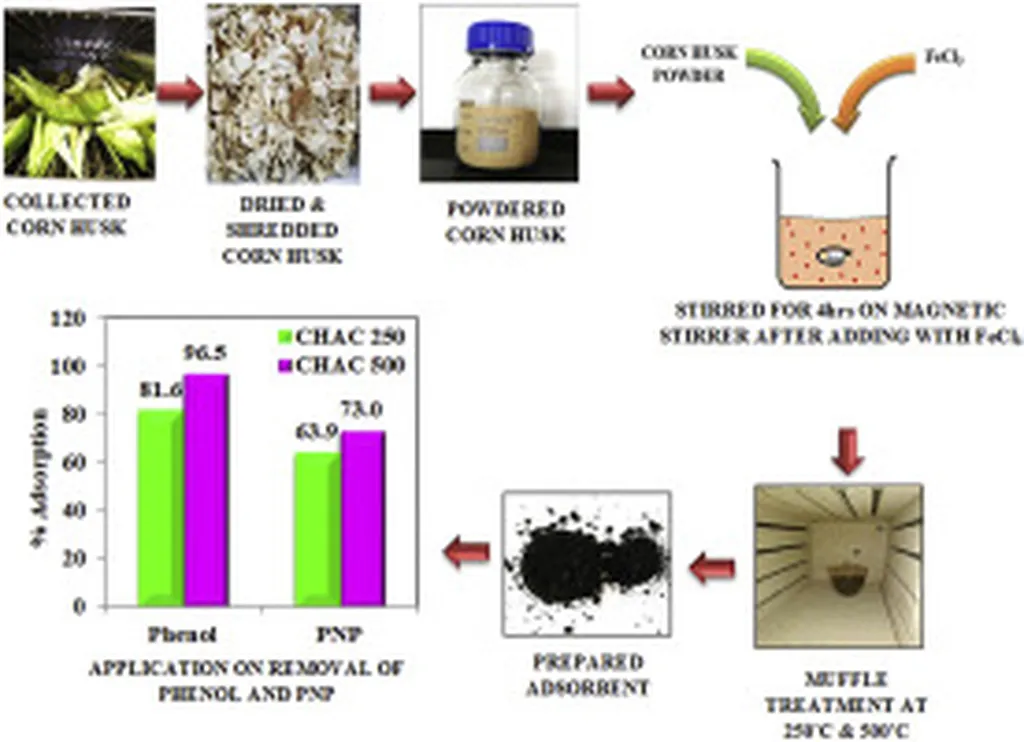In a groundbreaking development for sustainable water treatment, researchers have transformed corn husks, typically discarded as agricultural waste, into an effective and eco-friendly flocculant. This innovation, led by Ana Gabriela Tomé of the University of Porto, offers a promising alternative to conventional synthetic coagulants, with significant implications for the energy and water treatment sectors.
The study, published in the journal ‘Materials Research’ (or ‘Pesquisa em Materiais’ in Portuguese), details the extraction and modification of hemicelluloses from corn husks using an advanced OxiOrganosolv method. This process yields a cationic hemicellulose (CH) with a high degree of substitution, making it an effective flocculant for raw water treatment.
“By utilizing agro-industrial residues, we not only address environmental sustainability but also tap into a renewable resource that can reduce dependency on synthetic chemicals,” explains Tomé. The research demonstrates that CH can achieve remarkable removal rates of apparent color (66.3%) and turbidity (89.2%) from raw water under optimal conditions.
The commercial potential of this innovation is substantial. Water treatment is a critical component of energy production, particularly in industries such as oil and gas, where large volumes of water require purification. The shift towards natural-based flocculants like CH can lead to cost savings, reduced environmental impact, and improved regulatory compliance.
Moreover, the successful application of CH in water treatment highlights the broader potential of lignocellulosic biomass as a source of high-value chemicals. This research could inspire further exploration into the utilization of other agricultural residues, fostering a circular economy where waste is minimized, and resources are maximized.
As the energy sector increasingly prioritizes sustainability, innovations like cationic hemicelluloses derived from corn husks pave the way for greener and more efficient water treatment solutions. The findings of this study not only contribute to academic knowledge but also offer practical insights for industry professionals seeking sustainable alternatives.
In the words of Tomé, “This research is a step towards a more sustainable future, where industrial processes and environmental stewardship go hand in hand.” The journey from corn husks to clean water exemplifies the power of innovative thinking in addressing global challenges.

